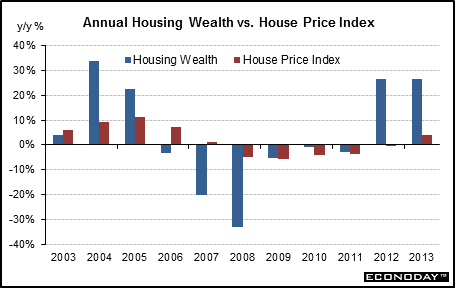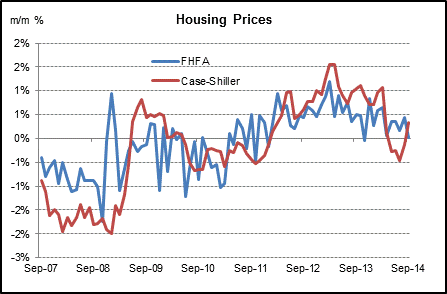
|
Long Term Perspective In the old days, one thought of accumulating wealth by saving, investing and building equity in one's home. It was certainly considered a good idea to purchase a home and build equity because housing was one of the few investments that kept up with inflation for the most part. While housing prices have surged and collapsed over the years, the latest plunge in housing prices – and only partial rebound – has changed how consumers see housing as a way to accumulate wealth.
Nonetheless, consumers who are homeowners often can still tap into their home equity when needed. The wealth accumulated in the nation's housing stock still is consequential to consumer spending as is stock market wealth. Indeed, Stephen Cecchetti, now a Brandeis University professor and formerly head of research at the New York Federal Reserve Bank, has noted that an increase in housing market wealth has about twice the impact on consumption of an equivalent increase in stock market wealth. ("Why Federal Reserve must raise interest rates," Financial Times, August 7, 2005) As long as home values continue to appreciate, consumers can utilize the equity in their home to finance new cars, vacations and other consumption expenditures today instead of saving for the future.
In 2007, a surge in mortgage debt cut into growth of housing wealth and actually turning it into negative growth. A drop in housing prices also contributed to the decline in 2008, 2009, and 2010. House prices remained under downward pressure in 2011 but turned up in latter 2012.
Short Term Perspective Housing wealth data come from the flow of funds report, which is released with a long lag. This house price index compiled by the Office of Federal Housing Finance Agency (FHFA) is a broad measure of the movement of single family house prices and seems to move in tandem (albeit not exactly by the same magnitude) as housing wealth.
In 2014, housing demand softened after shortages of supply for housing markets placed upward pressure on prices in 2013. Home prices, according to the FHFA, were flat in September 2014 after rising 0.4 percent the month before. On a year-ago basis, FHFA home prices for the U.S. were up 4.9 percent in September 2014 versus 5.6 percent the month before.
Case-Shiller's adjusted 20-city index was 0.3 percent in September after slipping 0.1 percent the month before. The year-on-year rate slowed to 4.9 percent versus 5.6 percent in August.
|
|||||||
| Legal Notices | ©Copyright 1998-2025 Econoday, Inc. |
powered by
![[Econoday]](images/logo.gif)
![[Apple App Store]](/images/AppleAppStore.png) ![[Econoday on Kindle]](/images/kindle.jpg) 
|
||||||

